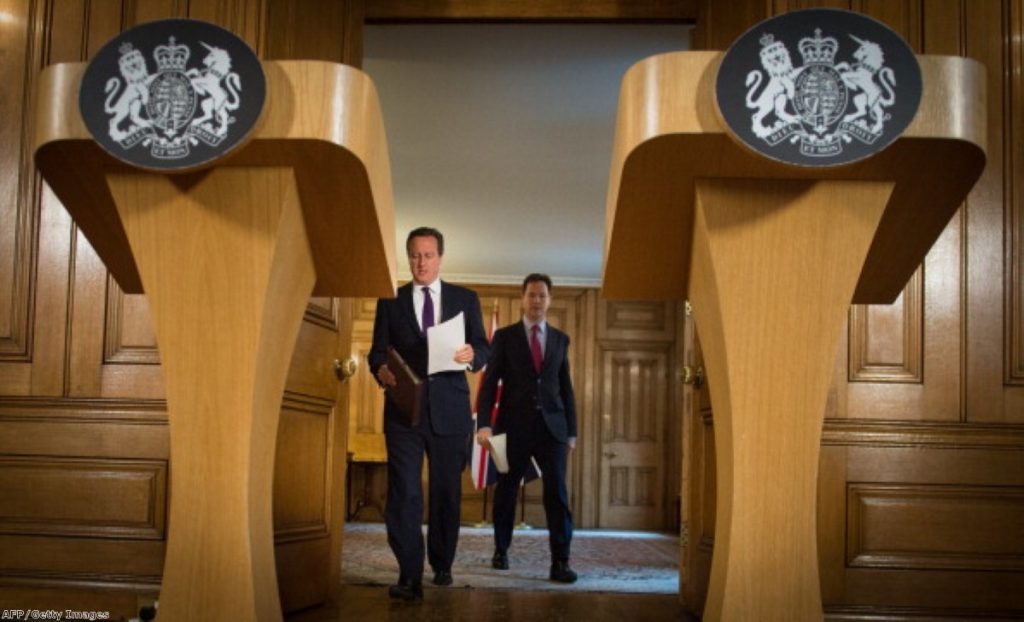The Week in Review: Will politicians ever say no to the security services?
What unites David Cameron, Ed Miliband, Nick Clegg and Boris Johnson?
No, it's not a shared love of cycling, or a penchant for holidays in Tuscany.
No, what unites these four men is the belief that the police and security services should be given whatever powers they ask for, whenever they ask for them.
This belief was demonstrated this week as the leaders of the three main political parties conspired to hand over vast new surveillance powers to the security services. The new bill is being railroaded into law with almost no consultation or debate and with few members of the public even aware that it has happened.


It is the latest step in the apparently inevitable erosion of individual privacy in the UK.
So where has this demand for mass surveillance come from? It does not appear to have been sparked by widespread public concern. Nor has it come from any apparent impending threat to the UK.
No, the demand appears to have come solely from the security services themselves and our politician's apparent reluctance to ever question the need for it.
This reluctance was equally apparent in the arrival this week of water cannon to mainland Britain for the first time in our history.
The controversial weapons are currently being phased out in Germany, following their role in the death of one protester and the blinding of another. Boris Johnson decided to buy these weapons despite their terrible safety record and the fact he himself repeatedly stated his opposition to them ever being used.
"I don't ever want to see them being used," Johnson repeatedly told the London Assembly on Thursday, insisting that it would be "vanishingly unlikely" they ever would be.
These are not just weasel words. Johnson has stated his opposition to water cannon many times over the years, insisting that he does not want to start an "arms race" with protesters.
His own team are also against their use, with several Conservative AMs and even his own deputy mayor, voting against their use earlier this year. Last month a member of his inner circle told Politics.co.uk that Johnson will "live to regret" bringing them to the UK.
So why then, given that his own instincts and those of so many close to him are against water cannons, has he decided to go ahead and purchase them anyway? Why, like Nick Clegg on surveillance powers, has he so blatantly abandoned his principles when there was no apparent need for him to do so?
The answer to this question is that, like Clegg, Cameron and Miliband, he is simply unable to say no to the police and security services. This 'always surrender' tendency was painfully illustrated in an exchange between Boris's policing deputy and the London Assembly last month.
Asked for examples of when he had ever said no to police demands, Stephen Greenhalgh explained that he both never had and never would, adding: "it is not my job to second-guess professional police officers".
This in a nutshell, is our politicians' attitude to the police and security services. If the police ask for something, then politicians believe it is their job to quickly provide them with it.
Never mind the catalogues of recent and historic failures at the Metropolitan police and GCHQ. Never mind the revelations of covert and unauthorised mass surveillance revealed by the Snowden revelations. Never mind the long record of the security services abusing the extensive and growing powers they already have. Never mind all of these things. If the police ask for something, then politicians see it as their job to hand it over, no questions asked.
It is difficult to see how this problem can ever be solved. The election of local police commissioners has done little to bring a new era of accountability in British policing. In any case, even this small step forward is set to be reversed if Labour win the general election next year.
No, the problem appears to be deeply ingrained in British political culture at all levels. The events of this week show it is here to stay.

